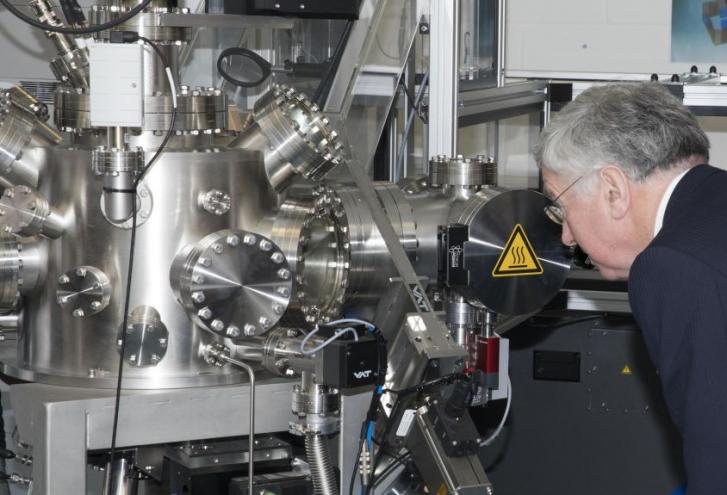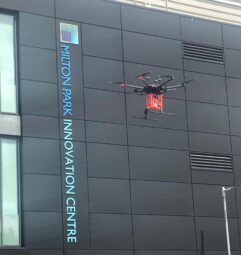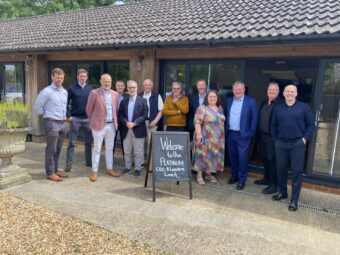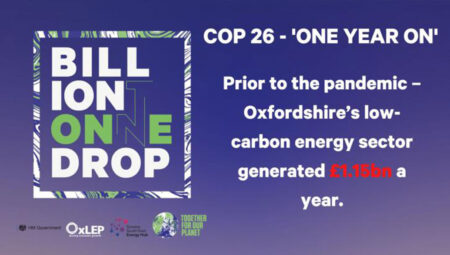
Local Growth Fund Case Study: Oxford Centre for Applied Superconductivity
The property of zero electrical resistance in some substances at very low absolute temperatures, ‘superconductivity’ sees the conductivity of materials become such that when an electric current is passed through a loop of such a superconductor, the electric current will keep flowing through it indefinitely without any need of a power supply – thus leading to the creation of self-sustaining energy sources.
Superconductors are vital within the development and implementation of powerful new technologies in healthcare, large experimental facilities like CERN, quantum instrumentation and many other fields.
The Oxford Centre for Applied Superconductivity is a new centre of innovation developed to coordinate the interaction between key industry players, Oxford University, cryogenics companies, and end users (including SMEs) on the Harwell campus and at the Culham Centre for Fusion Research Campus – utilising the county’s key assets to further collaboration within the sector.
Local Growth Fund Case Study: Oxford Centre for Applied Superconductivity
The Centre is developing a series of experimental and testing facilities to allow easy interaction between academia and industry to solve relevant problems, whilst training individuals with the necessary skills to work in superconductivity, which can also be transferable to other relevant industries.
The Centre’s Applied Superconductivity Hub (a joint project between the Materials Department and the Physics Department of the University of Oxford) is also being utilised to study future applications of superconducting materials.
The planned outcome of this Local Growth Fund project – which has been achieved through the investment of £1,558,739 in Enabled Funding – was to engage with local industry and research centres interested in the application of superconductivity and pursue projects that can lead to future technological advancements and the discovery of novel superconducting materials.
The new facilities include state-of-the-art equipment, including the following:
- Panalytical Empyrean X-ray Diffractometer
- Attocube Magnetic Force Microscope
- AttoDRY 1000
- Test Pulsed Deposition (PLD) facility
- 16T Physical Properties Versatile Measurement System
- High Current Power Supplies (2400 A)
The Oxford Centre for Applied Superconductivity project was supported by £4.49m from the Government’s Local Growth Fund, secured by OxLEP, with match funding of £2.42m from the University of Oxford. The project began in July 2016 and completed in December 2017.

The project has enabled Oxford University to play an expanded role in developing the strategy of UKAEA in the national Small Tokamak for Energy Production programme. In addition, the research team at Oxford University have advanced both the wider international knowledge base and assisted Oxford Instruments Nanoscience to gain a deep understanding of both the complexity and opportunities of jointing these High-temperature Superconductivity materials.
Personnel trained through this project have taken up positions in local industry and national laboratories (Tokamak Energy, UKAEA), and are now able to influence key technical decisions in the use of superconductivity in the UK’s future fusion reactors.
The project has exceeded the planned outcomes as outlined below:
- 15.5 jobs against a planned output of 13.5 jobs
- 26 traineeships against a planned output of 11 traineeships
- 216 sqm new and improved floorspace achieved in accordance with the planned output
The personnel trained to continue to be influential in the use of superconductivity both nationally and internationally thereby adding to the project outcomes.
Find out more about the science of Superconductivity
View our other Local Growth Fund case studies
Images courtesy of the University of Oxford.
More in Business Strategy

What prospects are thinking but often fail to ask
I was at a B4 Ecosystem Event recently run by Caroline O’Connor of Fourth Born and she posed a brilliant question to the room. Article by David Finch of Purple Frog

‘Meanwhile in Oxfordshire..’ Case Study: Ducky Zebra, the sustainable kidswear brand...
‘Often girls’ clothes are pink, cute and impractical. They promote kindness, but not always confidence. And boys’ clothes are often blue, aggressive and adventure seeking. They promote confidence, but not always kindness. I wanted to bring these two characteristics together and allow all children, no matter what their gender, to celebrate both kindness and confidence.’ – Sally Dear, Founder of Ducky Zebra

Innovative drone delivery trials take place at Milton Park
A pilot demonstration for a set of innovative drone and electric van freight trials was successfully completed at Milton Park.
From this author

B4 Platinum CEOs and Leaders Discussion Lunch with Nigel Tipple, CEO,...
On a monthly basis, B4 invites a leader from one of its Platinum membership companies to host a lunch, bringing together senior directors from within the B4 community giving those in attendance an opportunity to share news, collate views or discuss common challenges or opportunities faced by businesses.

Strategic Marketing Campaigns Commissioned – to support Oxfordshire’s visitor economy –...
A series of targeted marketing campaigns to promote Oxford and Oxfordshire have been commissioned with both Experience Oxfordshire and Cotswolds Tourism securing contracts to deliver the nine campaigns.

‘One year on from ‘Billion Tonne Drop’-themed conference, Oxfordshire has an...
On Tuesday 9 November 2021, OxLEP hosted an official COP26 roadshow event on the Presidency’s ‘Science and Innovation’ Day, titled ‘’The Billion Tonne Drop – How Oxfordshire leads the global charge to address the climate emergency’.

